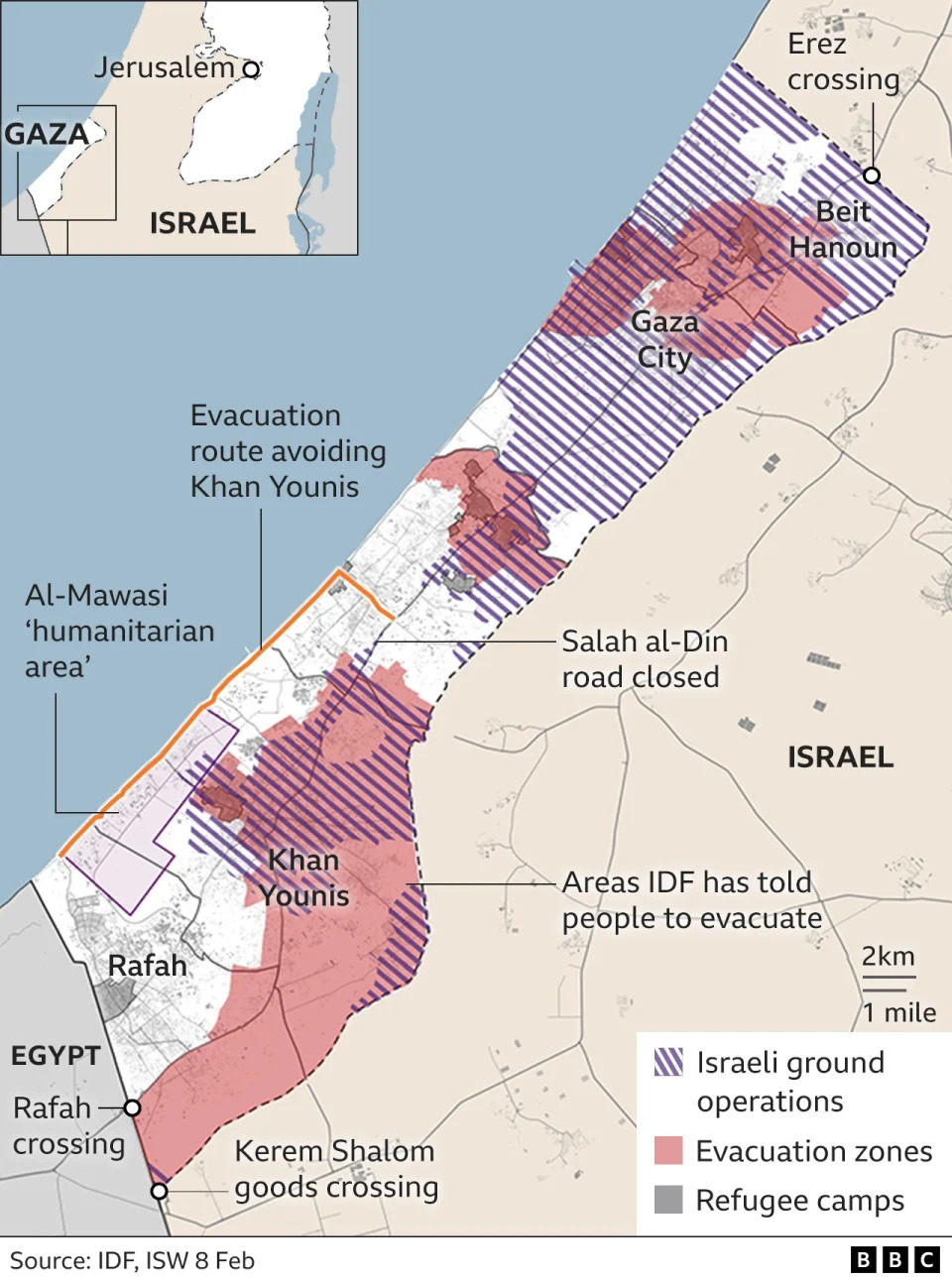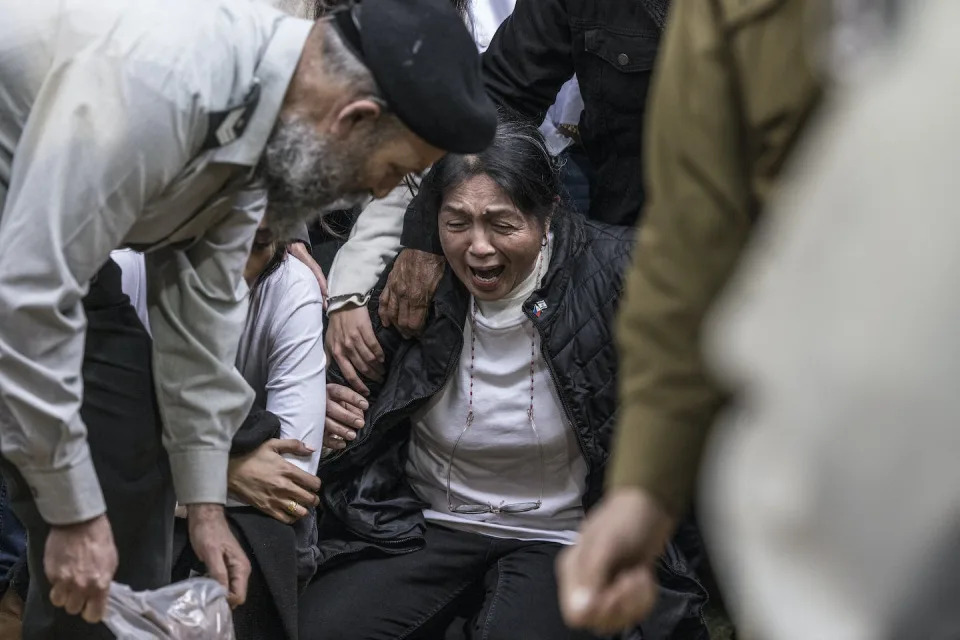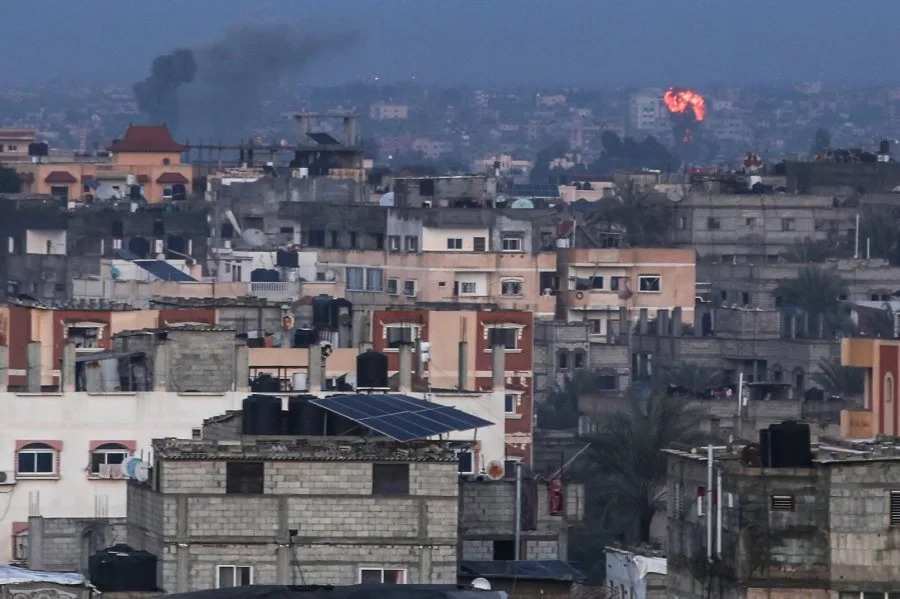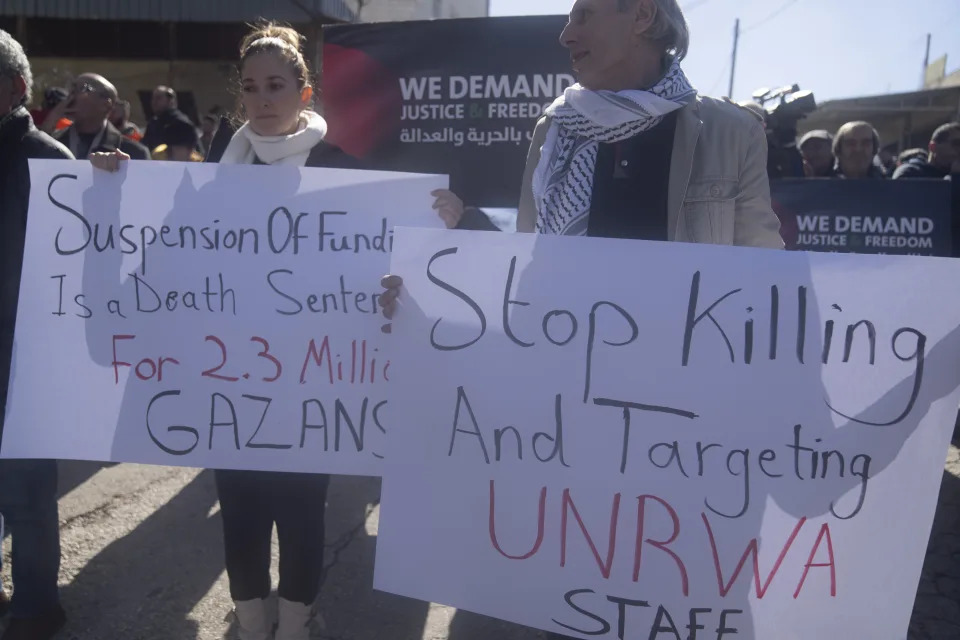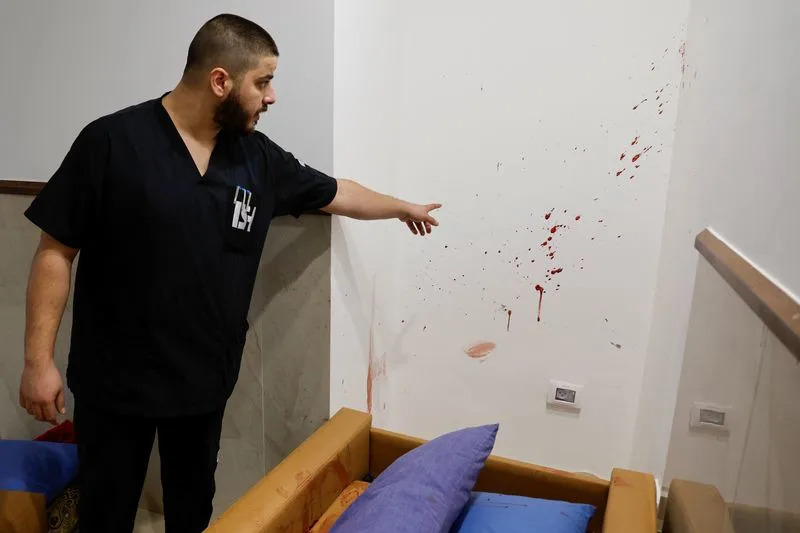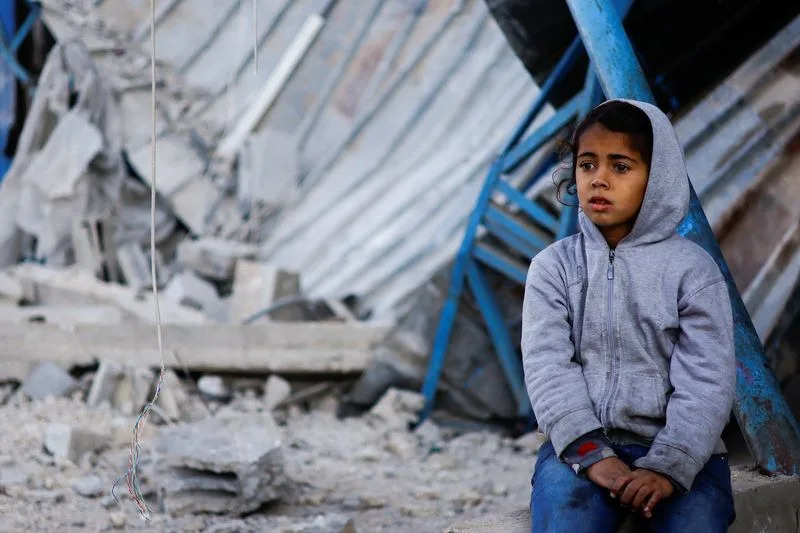Fri, February 9, 2024
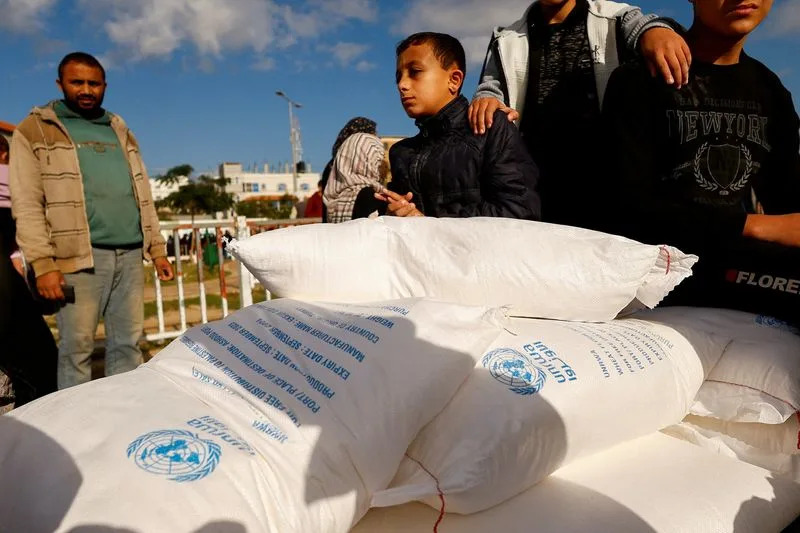
Palestinians gather to receive flour bags distributed by UNRWA in Rafah
By Gwladys Fouche
OSLO (Reuters) - Norway is giving 275 million crowns ($26 million) this year to the U.N. agency for Palestinian refugees (UNRWA) and could increase that sum if needed, it said on Friday, days after the agency warned it could cease all activity by the end of the month.
A string of countries including the United States, Germany and Britain paused their funding to the aid agency after accusations by Israel last month that some UNRWA staff were involved in Hamas' Oct. 7 attacks in southern Israel.
Norway, a top donor to UNRWA, is maintaining its funding.
UNRWA said on Feb. 1 that it could be forced to shut down its operations in the Middle East, not only in Gaza, by the end of February if its funding remains suspended.
Oslo said on Wednesday it was transferring 275 million crowns to UNRWA. On Friday the ministry of foreign affairs said that money covered Norway's regular, annual contribution to UNRWA, but that there could be additional payments.
"Due to the humanitarian catastrophe in Gaza, there may be additional funds from Norway to UNRWA throughout the year," said a foreign ministry spokesperson.
By comparison, Norway gave UNRWA 470.5 million crowns last year, she said. "This includes additional funding after the war started in October," she said.
"There is a shortage of all essential items and people are facing daily threats to their lives and safety. UNRWA is the backbone of humanitarian efforts in Gaza," Foreign Minister Espen Barth Eide said in a statement on Wednesday.
Oslo said on Jan. 31 it was urging countries that have paused funding to consider the wider consequences of their actions on the population in Gaza, given UNRWA is the main organisation supplying aid to Palestinians.
($1 = 10.6041 Norwegian crowns)
(Reporting by Gwladys Fouche; Editing by Frances Kerry)
UN chief warns Palestinian aid agency cannot be replaced
AFP
Thu, February 8, 2024
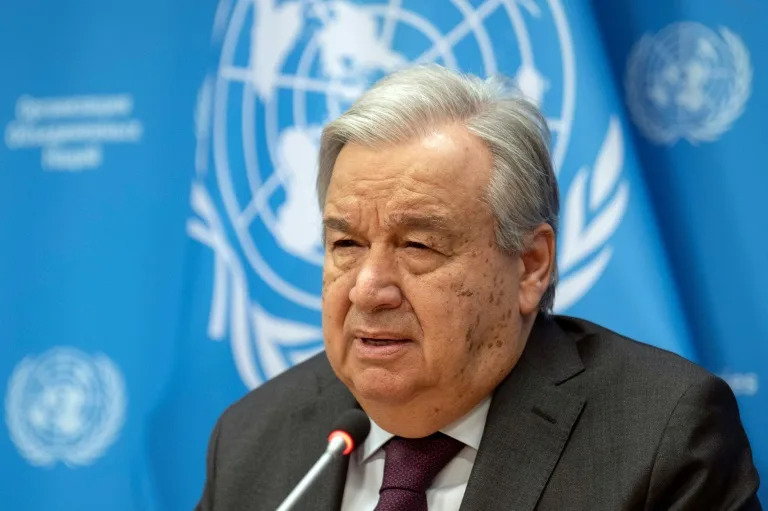
United Nations Secretary-General Antonio Guterres has led crunch talks with donor countries to have payments reinstated to the UN's Palestinian refugee agency
United Nations Secretary-General Antonio Guterres on Thursday warned that his organization's Palestinian refugee agency cannot be replaced, even as it faces criticism after 12 staffers were implicated in Hamas's attack on Israel.
Several countries -- including the United States, Britain, Germany and Japan -- have suspended funding to the UNRWA agency, and Guterres has led crunch talks with donor countries to have payments reinstated.
"No other organization has a meaningful presence inside Gaza -- and nothing compared with this situation. So there is no other organization that would be able now to replace" it, Guterres told a media briefing.
The dispute intensified at the end of last month after Israel accused UNRWA of allowing Hamas to use agency infrastructure in the Gaza Strip for military activity.
UNRWA said it has acted promptly over allegations by Israel -- which Guterres called "credible" -- that 12 of its staff were involved in the Hamas attacks, adding that cuts in funding would affect ordinary Palestinians.
The UN agency has long been under scrutiny by Israel, which accuses it of systematically going against the country's interests, with Israel vowing to stop the agency's work in Gaza after the war.
Guterres pointed to the cost effectiveness of UNRWA as he defended why it was the best-placed organization to continue to deliver aid to Gaza.
"The costs with UNRWA are much lower than the costs with other agencies for historical reasons. The salaries paid by UNRWA are one-third of the salaries paid by UNICEF or WFP or other UN organizations," Guterres said, singling out the UN's children's fund and its World Food Programme.
"So any attempt of replacement, that is not possible."
Heavy fighting has raged on despite international efforts towards a ceasefire in the bloodiest ever Gaza war, sparked by Hamas's October 7 attack on southern Israel.
Hamas's unprecedented attack resulted in the deaths of about 1,160 people, mostly civilians, according to an AFP tally based on official Israeli figures.
Israel vowed to eliminate the militant group and launched air strikes and a ground offensive that have killed at least 27,840 people, mostly women and children, according to the Gaza health ministry.
Militants also seized around 250 hostages. Israel says 132 remain in Gaza, of whom 29 are believed to have died.
Fears of ground fighting grew Thursday among the more than one million Palestinians crowded into Rafah as Israel stepped up air strikes on the far-southern city.
abd-gw/sst
Israel welcomes investigation into allegations against UNRWA
DPA
Fri, February 9, 2024
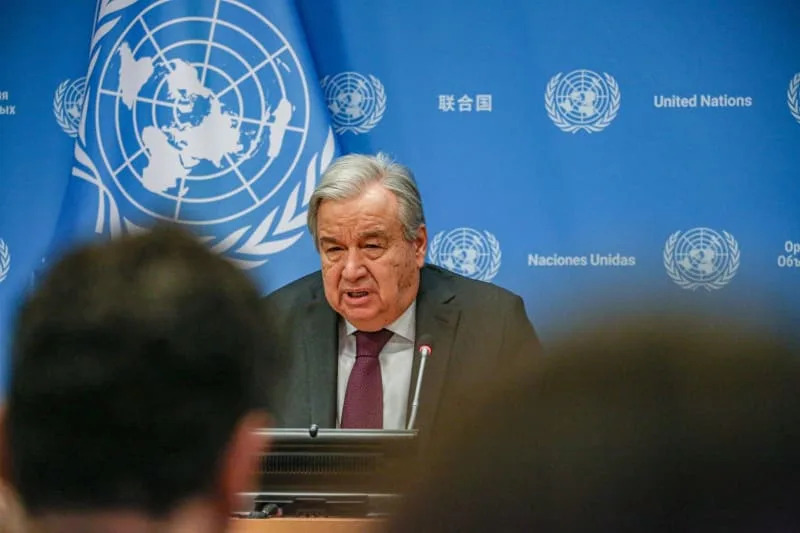
UN Secretary-General Antonio Guterres speaks during a press conference about his priorities for 2024. Bianca Otero/ZUMA Press Wire/dpa
Israel welcomed a planned investigation into the allegations that members of the UN Relief and Works Agency for Palestine Refugees in the Near East (UNRWA) were involved in the October 7 killings on Friday.
"The establishment of an independent review group to assess UNRWA’s neutrality following the publication of information indicating the participation of agency employees in terror activities is a positive step, although it is long overdue," an Israeli Foreign Ministry spokesman said on Friday.
"However, the review group should include research institutes with relevant professional experience that includes counter-terrorism, security and vetting procedures," he said in a post on X, the platform formerly known as Twitter.
"Israel expects that the group will include major donors to the agency as well as Israeli experts," he added.
The UN said Former French foreign minister Catherine Colonna is to head an independent group of experts to examine the serious allegations against UNRWA, the UN said on Monday.
Israel has accused several UNRWA employees of being involved in the October 7 terror attacks led by the Palestinian militant group Hamas. Several major Western donors to UNRWA, including the United States and Germany, temporarily suspended payments to the Gaza relief agency over the allegations.
Colonna's group is due to begin its work on February 14, with an interim report expected sometime before the end of March.
The expert panel is expected to consider whether UNRWA has violated measures aimed at maintaining the group's neutrality in the Gaza Strip, which Hamas has been ruling since 2007.
UN Secretary General António Guterres promised comprehensive clarification. Several employees have already been terminated.
Suggestions for improvements and changes can also be made, as international donors such as the United States demand fundamental reforms.
Alongside Colonna's investigation, the UN is conducting a second, internal audit, dealing specifically with the allegations against the UN aid organization's staff. This is expected to take several weeks.
Israel expects the review committee to also investigate "incitement to violence and antisemitism in UNRWA’s educational system, in textbooks and by teachers, before and after the October 7 massacre," the spokesman for the Israeli Foreign Ministry said.
The areas of the investigation should be more clearly defined, regarding "the need to prevent the employment of members of terror groups in the ranks of the organization and to ensure that the organization’s facilities will not be used for terror purposes," he added.
The Gaza war was triggered by the unprecedented attacks by militants from the Palestinian Hamas organization and other extremist groups in Israel on October 7. More than 1,200 Israelis were killed, including around 850 civilians.
In response, Israel's massive airstrikes and ground offensive in Gaza have killed 27,478 Palestinians since the war began, according to the health authority in the coastal strip.
At least 300,000 at risk from lack of food in north, central Gaza: UN
Adel ZAANOUN with Chloe ROUVEYROLLES-BAZIRE in Jerusalem
Thu, February 8, 2024
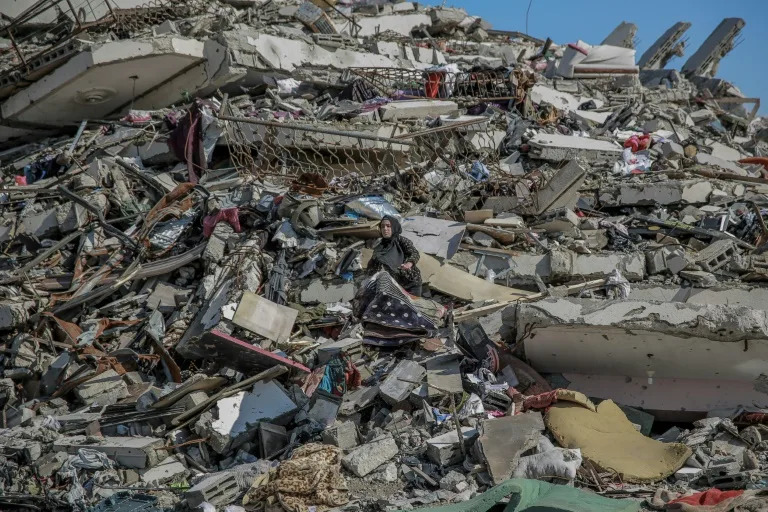
Hundreds of thousands of people's lives are at risk in north and central Gaza because of a lack of food, the UN agency for Palestinian refugees (UNRWA) warned on Thursday.
UNRWA chief Philippe Lazzarini said the last time the agency was allowed to deliver supplies to the area was more than two weeks ago on January 23.
Other agencies providing humanitarian aid also reported blocks on getting relief into the Palestinian territory, which has been bombarded by Israel since Hamas's deadly attack on October 7.
"Since the beginning of the year, half of our aid mission requests to the north were denied," Lazzarini wrote on X, formerly Twitter.
"The @UN has identified deep pockets of starvation and hunger in northern #Gaza where people are believed to be on the verge of famine.
"At least 300,000 people living in the area depend on our assistance for their survival."
Israel, which has laid siege to the tiny, densely populated territory, ordered people living in north and central Gaza to move south as it goes after those responsible for the October 7 attack.
More than half of Gaza's estimated 2.4 million people are now crowded into the city of Rafah in the south, where Israel's Prime Minister Benjamin Netanyahu has ordered troops to prepare to attack.
Thomas White, director of UNRWA affairs in Gaza, said there was now "enormous concern" about a looming offensive in Rafah, where the agency bases its operation for the whole of the Gaza Strip.
"It's going to be very difficult to manage an aid operation if we have to move from Rafah. We are struggling to meet the demands of the people right now," he told Al Jazeera English.
"If there are hundreds and hundreds of thousands of people on the move again, we just do not have the resources to support them but also operationally we will not be able to effectively or safely run operations from a city that's under assault from the Israeli army."
- 'Hunger and despair' -
Despite the move south, many remain in Wadi Gaza, in the centre, and the north.
Georgios Petropoulos, head of the UN humanitarian agency OCHA in Gaza, said the territory was being turned "into a wasteland of hunger and despair".
Aid agencies were being blocked, while the few trucks that make it through are mobbed by residents, who in north Gaza were "on the edge of starvation", he told AFP on Wednesday.
"They congregate by trucks and other vehicles carrying goods sometimes in their thousands, and unload them in minutes," he added.
An AFP reporter on Wednesday witnessed hundreds of men waiting for a convoy of aid trucks south of Gaza City on the main road from north to south.
When they saw Israeli military vehicles advance in their direction, many fled but others kept moving towards the convoy. Several were wounded by gunfire and were taken to hospital, the reporter added.
World Central Kitchen, a non-profit organisation providing food aid, also reported only being able to get to north Gaza "a limited number of times each week".
They now take two trucks -- one transporting meals for hospitals, and the other to deliver food to crowds on the route, it said in a statement.
US Secretary of State Antony Blinken, on a visit to the region this week, made a new plea for more aid into Gaza.
"Preventing access prevents lifesaving humanitarian aid," wrote Lazzarini. "With the necessary political will, this can be easily reversed."
But Israel claims that Hamas, which runs Gaza, is diverting aid for its own ends to prolong the five-month conflict.

